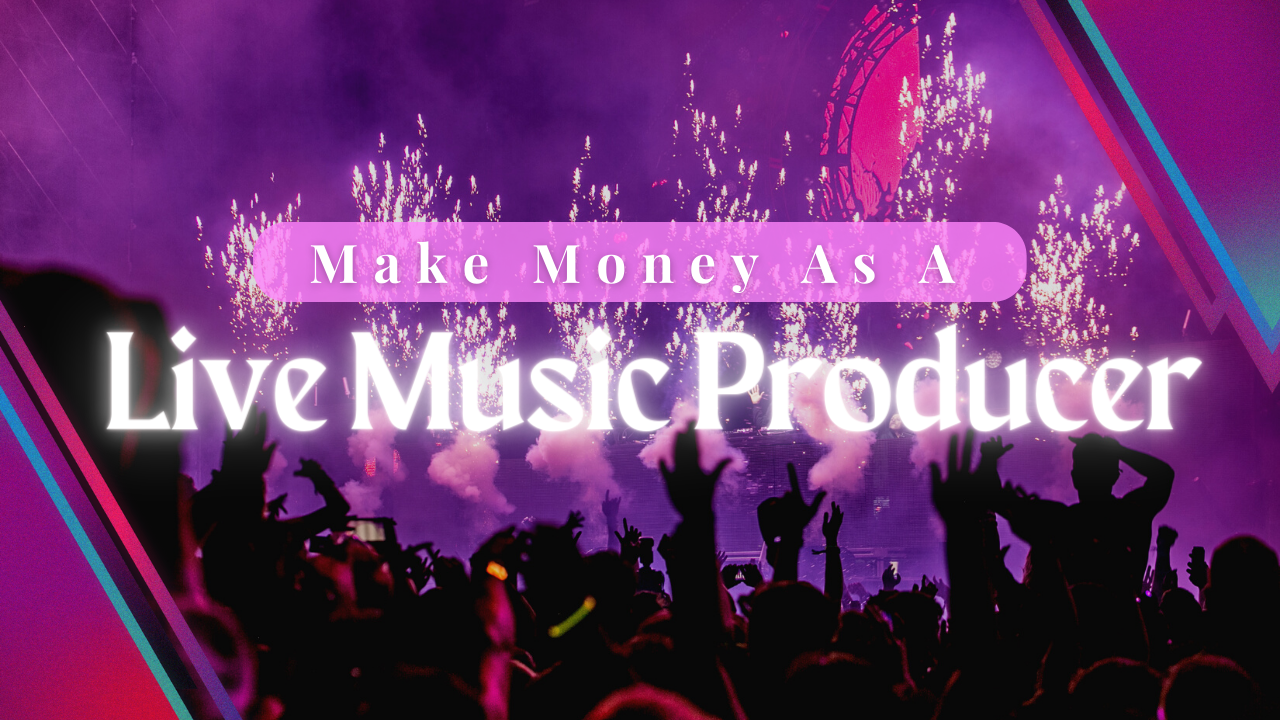Make Money As A Live Music Producer
Being a music producer is fun! Working out of the studio. Working with great artists and musicians. Working with the best gear and the best engineers. And most importantly, making great music. But there’s a place that really takes that to the next level. A place where ultimately, all of your work in the studio is meant to shine. And that place is……in front of a live audience.
The live stage is the final destination for our music. And that presents an opportunity for you as a producer. Live producing is a vertical of music production in general. Think of it this way, all of the skills necessary to be a great music studio producer are the same skills needed to be a great live music producer. Here are a few similarities: The same gear is used, interfaces, cables, microphones, DAWs, computers, instruments, etc. You need to be able to work with vocalist, put a band together, work with engineers, and manage a budget.
So with that being said, there’s another whole revenue stream available to you as a producer by applying your skills in the live music environment.
Here are a few ways you can work in the live music industry as a producer:
Musical Director: A musical director or "MD" is responsible for supervising the musical arrangements and personnel for a touring artist. This can include festivals and televised performances as well as those at traditional on-stage venues. In the modern era, the sound of a studio recording is often impossible or impractical to reproduce on stage, and it is the music director's job to assemble musicians and arrangements to adapt that material to a live setting (which may or may not include playback of pre-recorded tracks). The music director generally leads rehearsals as well as each performance, allowing the lead artist to focus on performing.
Live Recording Producer: A Live recording producer produces music projects that are recorded at a live music event. They are responsible for bringing the recording equipment then setting up and capturing the music being performed on stage at the event.
DJ: "DJ" is used as an all-encompassing term to describe someone who mixes recorded music from any source, including vinyl records, cassettes, CDs, or digital audio files stored on USB stick or laptop. DJs typically perform for a live audience in a nightclub or dance club or a TV, radio broadcast audience, or an online radio audience. DJs also create mixes, remixes and tracks that are recorded for later sale and distribution
© Forward Producer





